University of Aysén
Institution - General description:
The University of Aysén, located in Coyhaique—the heart of Chilean Patagonia—is one of Chile's most recently established state universities, currently in its foundational phase. It boasts three academic departments: Natural Sciences and Technology, Health Sciences, and Social Sciences and Humanities. With approximately 700 students and 50 faculty members, the university is nestled in one of Chile’s largest regions, yet it is characterized by the lowest population density in the country.
Focused on addressing regional issues specific to Patagonia, the University of Aysén leads academic projects across its departments, fostering a deep connection between education and the area's unique environmental and social challenges. This commitment positions the university as a pivotal institution for pioneering research and education in one of the world’s most captivating natural landscapes.
Main website: www.uaysen.cl
Team Bio:
Department of Natural Sciences and Technology, University of Aysén
The Department of Natural Sciences and Technology at the University of Aysén is dedicated to advancing knowledge in the fields of natural sciences and technology, focusing on the dynamics and processes of nature and the sustainable management of natural resources. Situated in a challenging climatic context, the department promotes sustainable development through its rigorous academic programs in Agronomy, Forestry Engineering, Industrial Civil Engineering, and Computer Science Engineering.
The department's mission encompasses fostering basic and applied research aimed at sustainable agriculture, responsible management of forest and water resources, and innovative technological development. It focuses on two main knowledge areas:
Sustainable Biosphere: This area is committed to research, teaching, and community engagement in applied ecology, climate change, and regional dynamics, particularly emphasizing sustainability in the Patagonia-Aysén region.
Applied Sciences and Engineering: The objective here is to generate, transfer, and apply knowledge that drives sustainable progress through interdisciplinary research, comprehensive education, and community involvement with a strong focus on applied sciences and engineering disciplines.
In WP4, the Department of Natural Sciences and Technology collaborates to develop and provide COPERNICUS downstream services and related apps. These services support smart decision-making tools used by pilot users in Chile and Colombia, enhancing farm and forest management, and facilitating climate risk mitigation through agro-climatic indicators. The department plays a crucial role in validating the completeness, precision, and accuracy of data products relevant to the spatial and temporal scales of climate services and decision-making tools.
- Link to the team website: https://uaysen.cl/departamentos/ciencias-naturales-y-tecnologia
Institutional social media links:
- Facebook: Universidad de Aysén
- Instagram: @universidad_de_aysen
Bio - individual team members:
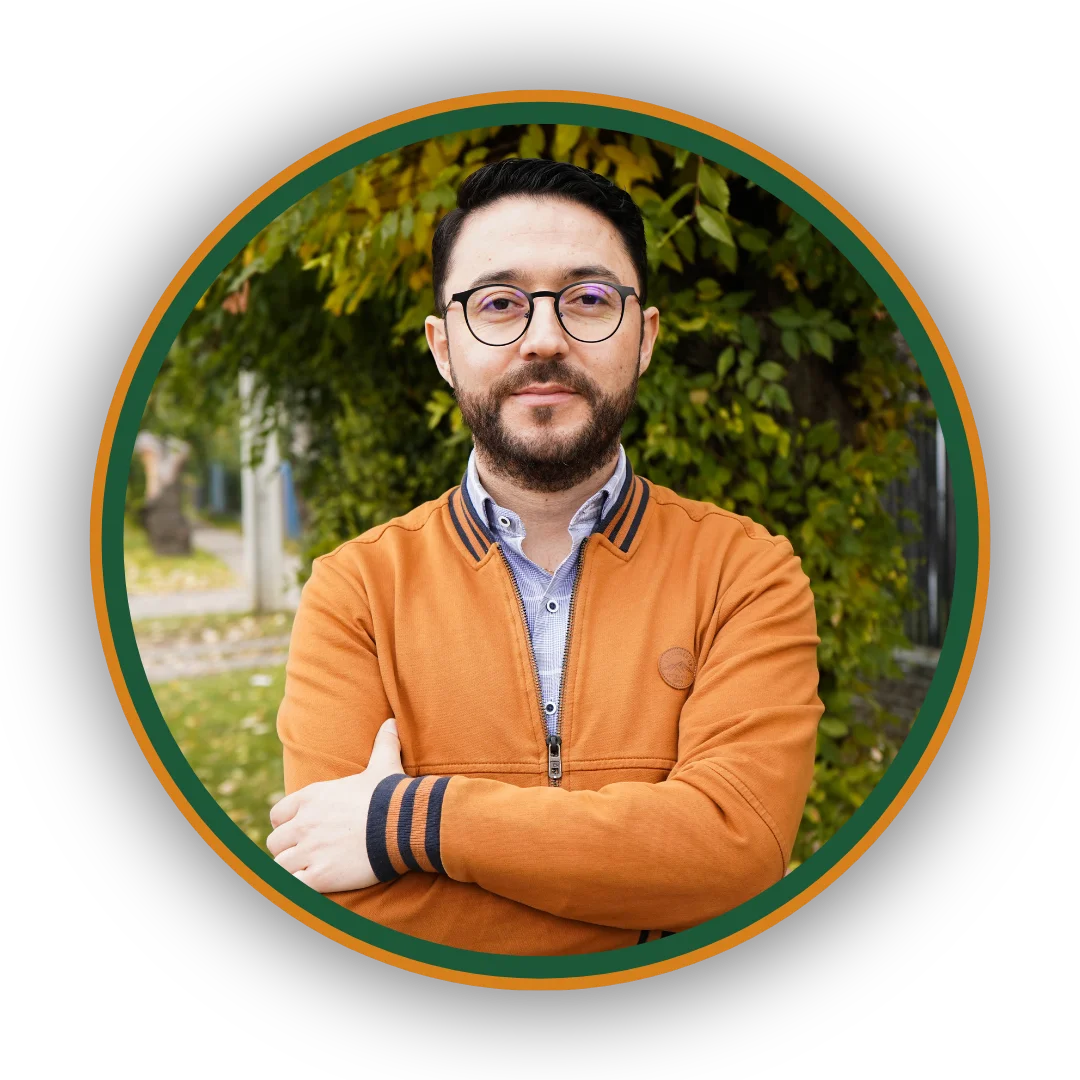
Johnny Valencia Calvo
Scientific and Technological Consultant | Complex Systems Specialist
Johnny Valencia-Calvo is a scientific and technological consultant specialising in complex systems, dynamic analysis, and advanced decision-making technologies. With over a decade of experience in applied research, system dynamics, modelling, and simulation, he has led multidisciplinary projects that integrate engineering, science, and public policy.
As an expert at the University of Aysén, he serves as the Leader of Work Package 4 (WP4) in the COMUNIDAD project, overseeing pilot programs in Chile and Colombia. His work focuses on leveraging artificial intelligence and satellite image analysis for the sustainable management of natural resources in Patagonia. Additionally, he conducts research on energy systems in medium and isolated networks in southern Chile, providing data-driven insights for strategic decision-making.
Johnny is committed to bridging academia, government, and the private sector through a robust framework for technology transfer and integration. By fostering interdisciplinary collaboration, he facilitates evidence-based policymaking and the implementation of scalable, technology-driven solutions.
His expertise includes leading high-performance teams, managing strategic projects, and applying cutting-edge tools to address complex environmental and technological challenges. He actively seeks collaborations that drive innovation, scientific progress, and societal impact, both in Chile and globally.
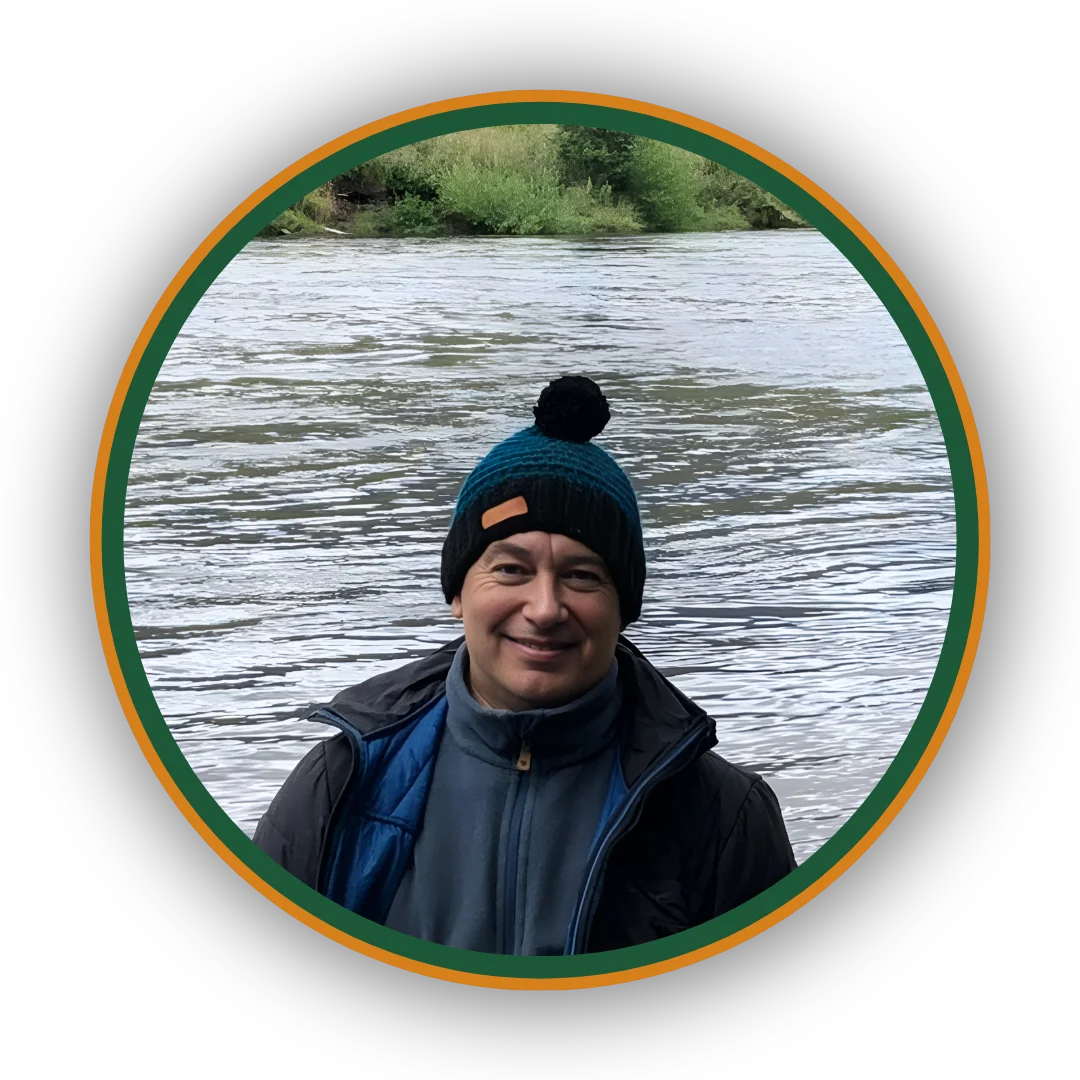
Gerard Olivar Tost
Executive Director, CIEP | Expert in Complex Systems and Applied Mathematics
Gerard Olivar-Tost is a distinguished researcher in applied mathematics and complex systems, with extensive experience in nonlinear dynamics, bifurcations, and real-world applications of mathematical modelling. He earned his degree in Mathematics from Universitat de Barcelona in 1987 and later obtained a Ph.D. in Applied Mathematics from Universitat Politècnica de Catalunya in 1997.
His academic career spans nearly two decades as an Associate Professor at Universitat Politècnica de Catalunya, where he specialised in nonlinear dynamics and chaos theory, particularly in DC-DC power converters. In 2005, he transitioned to Universidad Nacional de Colombia, Manizales, where he served as a Full Professor in the Department of Electrical and Electronics Engineering and Computer Science, leading research initiatives at the intersection of mathematics and engineering.
Since 2015, Professor Olivar-Tost has been a Full Professor at the Faculty of Sciences, Department of Mathematics and Statistics, focusing on mathematical applications in health sciences and sustainable development. He coordinates a research lab dedicated to engineering mathematics and previously served as the President of COSIAM (Colombian Section of SIAM), fostering collaboration in applied mathematics.
Currently, he is the Executive Director of the Research Center for Ecosystems of Patagonia (CIEP) in Chile’s Aysén region, where he leads interdisciplinary efforts in ecosystem analysis, environmental sustainability, and the integration of advanced mathematical models for regional development.
His research interests encompass complex systems, bifurcation theory, nonlinear dynamics, and sustainable development, with a strong emphasis on bridging mathematical theory with practical applications that address global environmental and societal challenges.
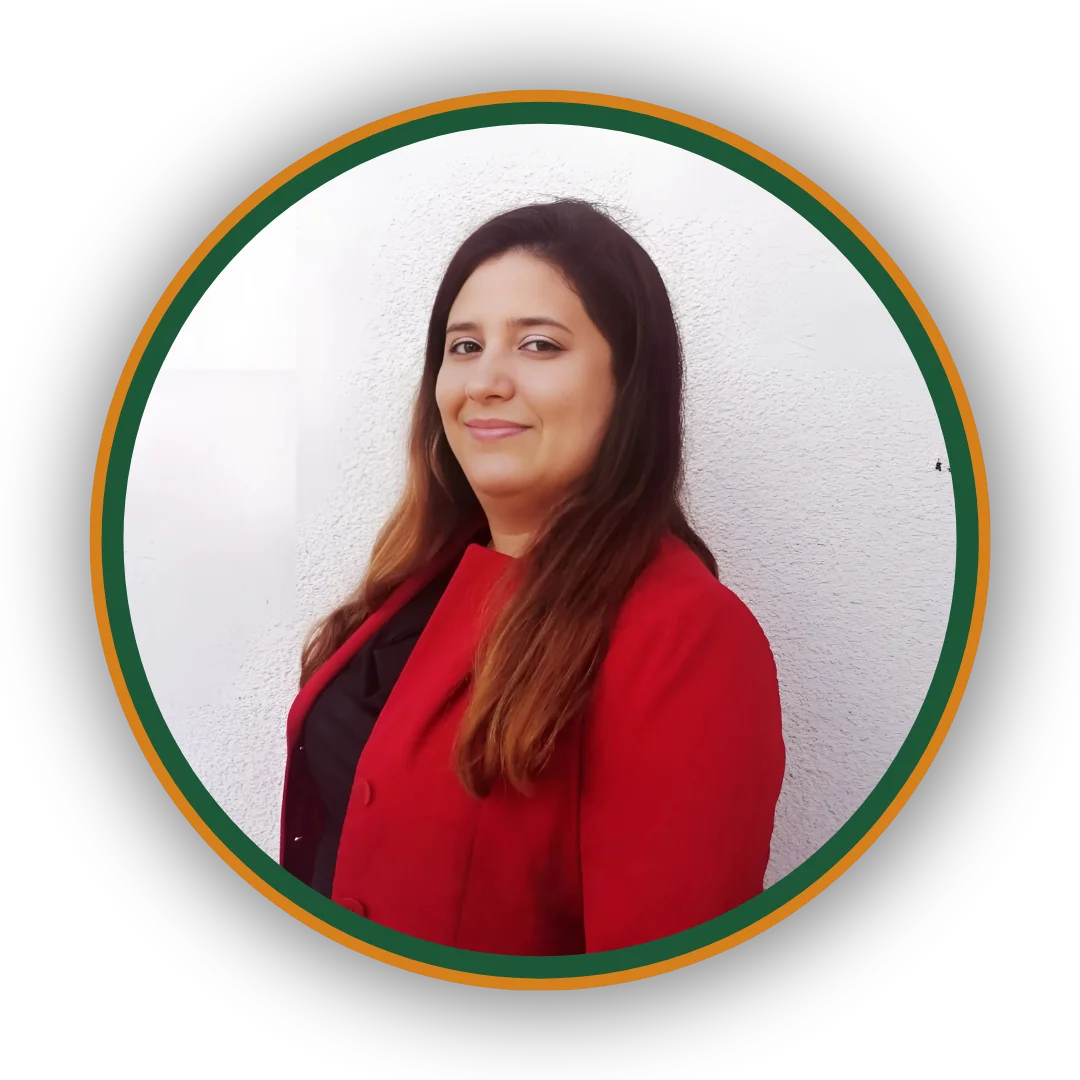
Karen Escalona
Researcher in Remote Sensing and Geographic Information Systems (GIS)
Karen Escalona is a dedicated researcher specializing in satellite remote sensing and Geographic Information Systems (GIS) for environmental monitoring and natural resource management. She holds a degree in Physics with a specialization in Geophysics from the Central University of Venezuela and a Ph.D. in Physical Sciences from the University of Concepción.
Her expertise lies in spatiotemporal analysis of biophysical parameters, including water quality, vegetation dynamics, and land use changes, utilizing advanced satellite image processing techniques, machine learning, and big data analytics. She has applied these methodologies to develop innovative solutions for environmental sustainability and territorial planning.
Previously, she worked as an Assistant Researcher at the National Institute of Meteorology and Hydrology in Venezuela and later as a Professor at the University of Bío-Bío (Chillán Campus) in the School of Natural Resources Engineering. There, she taught courses in spatial modelling, multicriteria decision-making, GIS, and remote sensing, while also supervising research projects in these fields.
Currently, she serves as a GIS and remote sensing expert at the University of Aysén and the Chilean Forestry Institute (INFOR), actively contributing to multidisciplinary research initiatives. She plays a key role in the COMUNIDAD and Agroforestry Watershed Governance projects, where she develops and implements spatial analysis methodologies and remote sensing tools to support sustainable natural resource management and evidence-based decision-making in territorial planning.
Her work bridges cutting-edge geospatial technologies with applied research, fostering data-driven strategies for environmental conservation and land management in Chilean Patagonia and beyond.
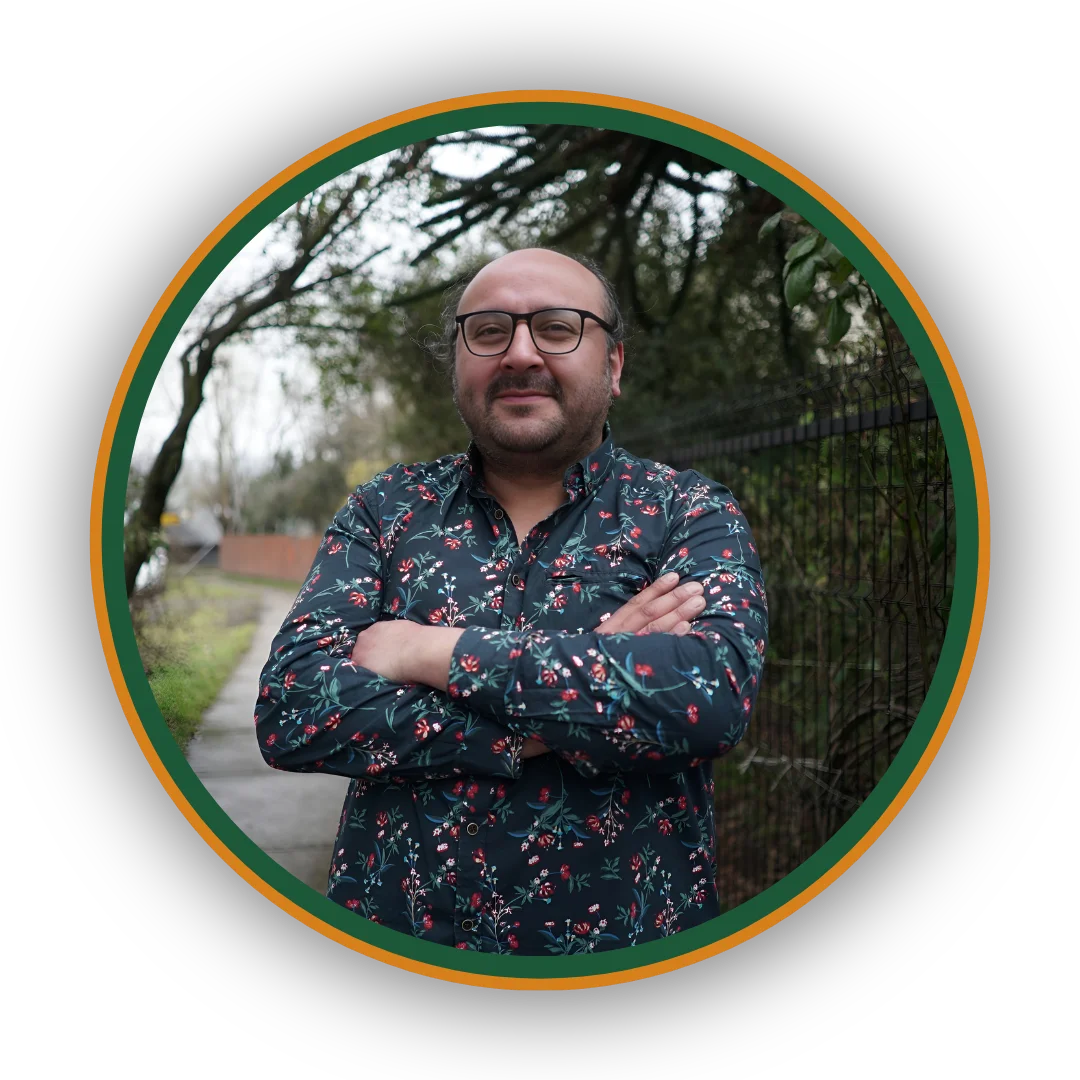
Marcelo Sanhueza
Marcelo Alejandro Sanhueza Ulloa is a Forestry Engineer with a degree in Forest Sciences from Universidad Austral de Chile. He is currently an Adjunct Professor in the Department of Natural Sciences and Technology at the University of Aysén, where he will be responsible for six courses, including two practical ones, starting in 2022. He also serves as the head of the Forestry Engineering program.
With fifteen years of experience in the forestry sector, Marcelo has worked in both public and private sectors and collaborated as a research assistant in universities and research centers. His career focuses on forestry and community development, dendroenergy, non-timber forest products (NTFPs), and rural women's issues. Notably, he has led the implementation of the Latin American and Caribbean Network of Rural Women (REDLAC) in Chile and served as an advisor to various organizations, including the Patagonia Verde Agroforestry Trade Union Federation and the Río Baker Cooperative.
In 2016, Marcelo received the Native Forest Award from the AIFBN Board of Directors for his exemplary work in the Aysén Region, significantly improving the quality of life for rural communities linked to native Patagonian forests and enhancing AIFBN's influence as a civil society environmental entity in Aysén.
His motivation lies in creating better living conditions and opportunities for people and addressing territorial demands in a participatory, solidarity-driven, and sustainable manner. He has published technical and scientific material on topics such as protected area tourism, aquatic macroinvertebrate fauna, NTFPs, and historical identity and memory related to forest products. Additionally, he has supervised undergraduate theses.
Marcelo's areas of interest include non-timber forest products (NTFPs)
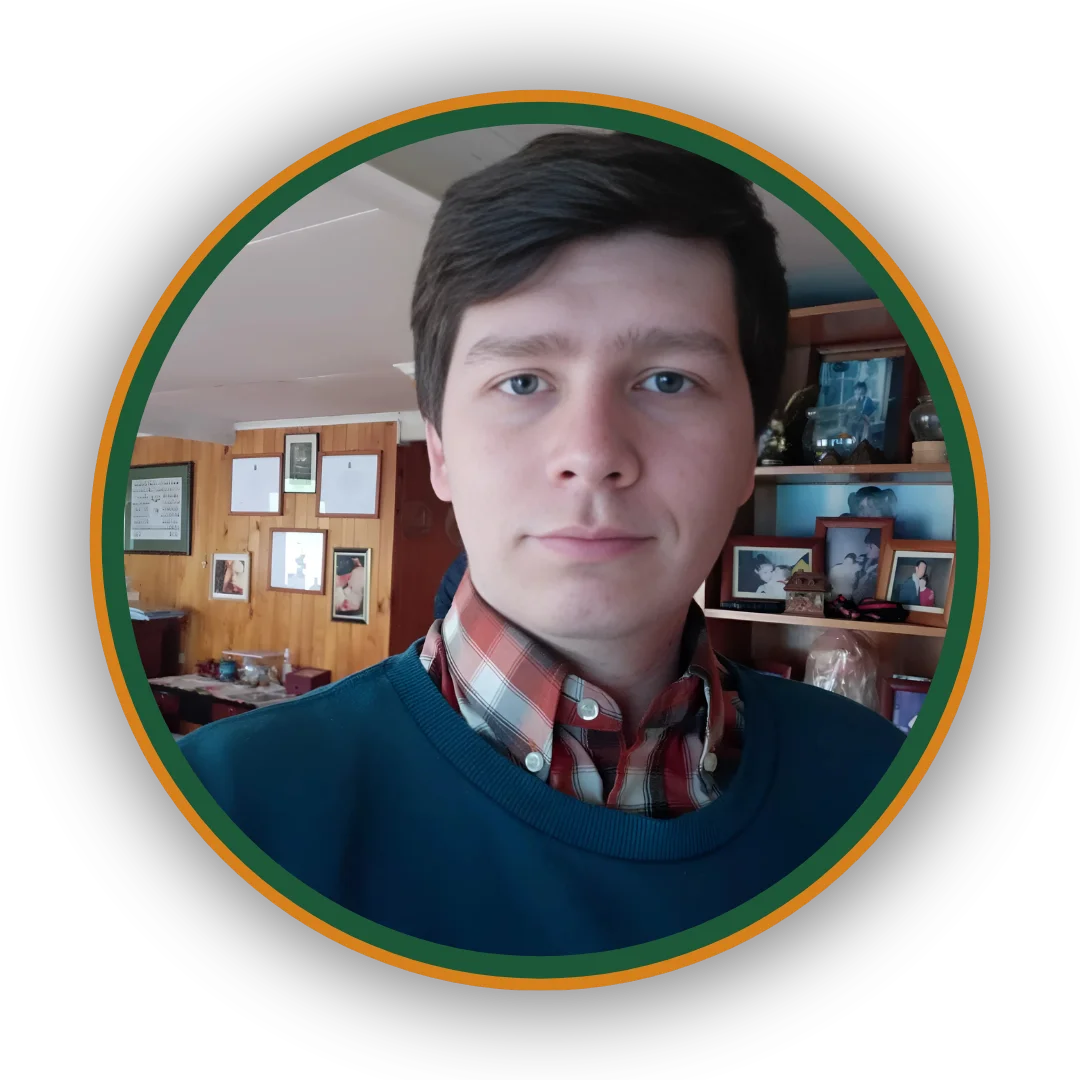
Valentín Alexis Solís Olave
Civil Industrial Engineer | Data Analysis
Valentín Alexis Solís Olave is a Civil Industrial Engineer from the Universidad de Aysén, graduating in 2024. Born and raised in Coyhaique, he has a strong connection to the Aysén Region and a deep interest in applying data-driven solutions to regional challenges.
During his university studies, he actively participated in research projects focused on regional development and sustainability, tackling issues such as aggregate extraction, firewood drying processes, and the application of artificial intelligence for vehicle detection. His academic background provided him with strong analytical and problem-solving skills, particularly in process optimization and technology integration.
His professional experience includes an internship at the Dirección Regional de Planeamiento del Ministerio de Obras Públicas in the Aysén Region, where he contributed to investment management strategies by developing a procedures manual and designing process flow diagrams for contract administration. In this role, he specialized in implementing Business Process Model and Notation (BPMN) to enhance operational efficiency.
Currently, Valentín is embarking on his professional career with a focus on data analysis, geospatial data applications, and artificial intelligence. His goal is to generate strategic insights that support evidence-based decision-making in key sectors of the Aysén Region, contributing to sustainable development and technological innovation.